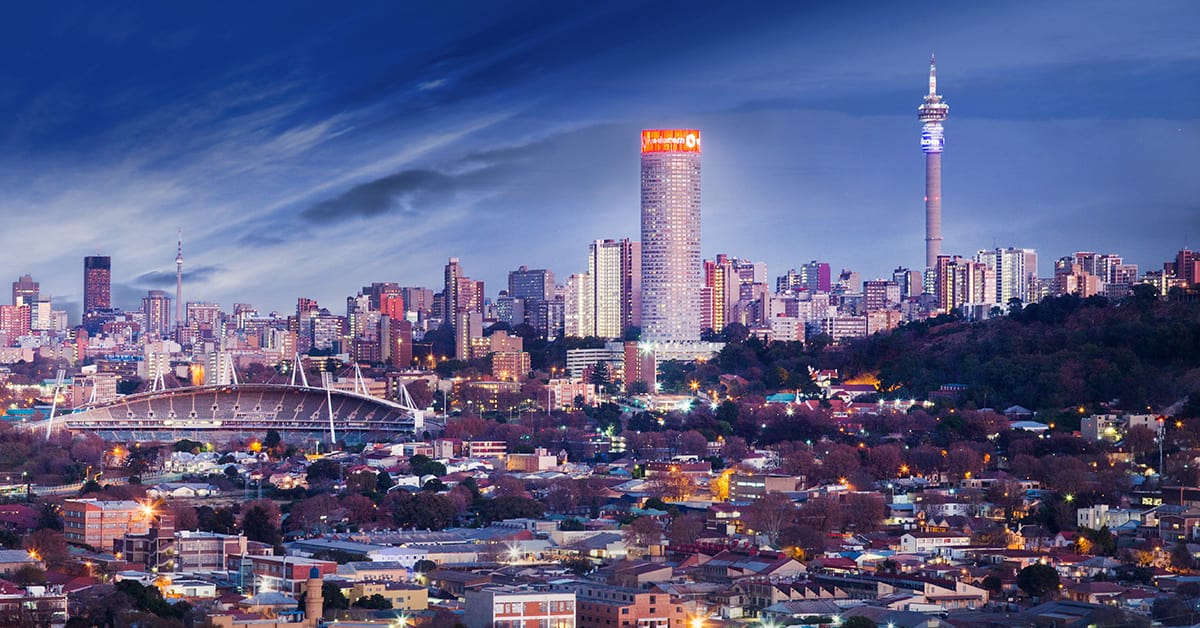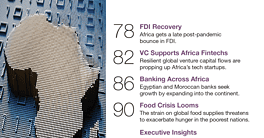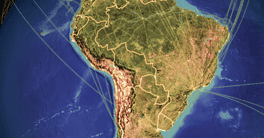South Africa faces the conundrum of widening income disparities even in times of rising growth.

With an investment worth over 4 billion rand (about $280 million at that time), Amazon announced in April that it would open its Africa headquarters in Cape Town, South Africa, saying it envisioned creating 5,239 jobs there in the construction phase of the project. Local politicians celebrated, with Alderman James Vos saying the investment opens “the door for many more investments in the IT and tech space.”
Also in April, sub-Saharan Africa’s second-largest economy won a 2021 award as the top global location for business process services, inspiring Malebo Mabitje-Thompson, deputy director general in the Department of Trade, Industry and Competition of South Africa, to say the accolade “confirms that South Africa is a notch above the rest as an investment destination with talent, technology and know-how.” In U.S. News & World Report’s 2021 Best Global Universities rankings, the top five institutions on the African continent were drawn from South Africa.
However, at present, the “rainbow nation” suffers from turbulent politics, which erupted following the July 7 arrest of former South African President Jacob Zuma for failing to cooperate with corruption investigations. The subsequent rioting will cost the country about 50 billion rand in lost output, Bloomberg estimates; while it will put 150,000 jobs at risk, according to the South African Property Owners Association.
World Bank data show more than half of the country’s 60 million people live in poverty and close to half (44.9%) faced “moderate or severe food insecurity” as of 2019, the most recent data. One in five South Africans lives on less than $1.90 a day according to the UN Human Development Report 2020. Inequality has soared since apartheid ended in 1994, and is expected to worsen.
“South Africa remains a dual economy with one of the highest persistent inequality rates in the world,” World Bank researchers wrote in a March report. “High inequality is perpetuated by a legacy of exclusion [and] inequalities are passed down from generation to generation with little change over time.”
South Africa’s unemployment rate, for example, surged to the highest in the world on a global list of 82 countries monitored by Bloomberg that was released in August. Over two million people lost their jobs in 2020 as a result of the pandemic; but unemployment has long been a problem, even during the three peak years when GDP was expanding at more than 5% annually.
In order to tackle the poverty, unemployment and inequality bedeviling South Africa, the country needs to register 5% annual increment in economic growth, says Thabi Leoka, a South African economist. Leoka expects annual growth of about 4% in 2021, settling into around 2% thereafter, but projections are vulnerable without reform.
Adding economic growth should also be equitable, since the country has had periods of strong growth prior to the global financial crisis. “But growth did not significantly reduce the unemployment rate, nor did it result in an equitable society,” she says.
“Basic services have crumbled in much of the country and the government is corrupt and inefficient,” says Benjamin Fogel, a historian at New York University and a South African national. “This, combined with ongoing racial and ethnic divides, makes the country a tinderbox.”
Dawie Roodt, a South African economist for Efficient Group, blames the malaise on the African National Congress (ANC) Party. “Because of many years of mismanagement, state-owned enterprises have been driven to the ground financially and operationally,” he says. “The fiscal accounts have become unsustainable, and confidence in government is at an all-time low. To fix these issues, strong leadership is required; but because of the ANC patronage system, it’s politically very difficult.”
Saying inequality worsened as a consequence of systematic failures at government level, Jacques Nel, head of Africa Macro at NKC African Economics, adds that “systemic failures at a government level” exacerbated the situation. It’s not just income inequality that is a problem, but unequal access to essential public services.
“One would have thought that 25 years into democracy we would not have children falling into pit latrines due to failures in the provision of ablution facilities,” he says, “and that we would have better access to health care and to land.”
July’s riots were a flashpoint. The extent of the turmoil, according to Andreas Freytag, a senior research associate at the South African Institute of International Affairs, “exposed South Africa’s underlying economic problems, including high rates of unemployment—above 64% for those under the age of 35.”
President Cyril Ramaphosa dismissed the riots as a failed insurrection by Zuma supporters. Zuma, 79, whose tenure as president was marked by scandal, was incarcerated after his July arrest at Estcourt prison located in KwaZulu-Natal province, his political base. He has since been released to an undisclosed hospital on medical parole, where he remains at the time of this writing, and is expected to be remanded to the community corrections system. He is under a 15-month jail sentence for contempt of court, for refusing to appear at an inquiry into corruption during his nearly nine years in office that ended in 2018.
According to Biniam Bedasso, a senior research associate at the Center for Global Development, South Africa’s structural economic and political tensions had long been simmering. South African commentators, he says, often talk about the triple challenges of poverty, inequality and unemployment. The Covid-19 crisis added fiscal sustainability to the list.
The government will find it rather difficult, with so little fiscal leeway, to address the long-standing grievances that contributed to the unrest. However, the immediate cause—the jailing of former president Zuma—suggests that judicial institutions are resilient and public accountability is returning after a period dominated by corruption and impunity.
Leoka says the South African government needs to implement growth-inducing policies. The problems faced by state-owned electricity utility Eskom for more than a decade, and the rippling disruptions they have caused to industry, are one example of the need for reform. The National Treasury identified network industries, energy, transport and communications, which are currently dominated by ailing state-owned companies, as priorities for fresh competition to improve efficiency and reduce prices.
“Barriers to entrepreneurship need to be lifted; and support needs to go to small businesses and the informal sector, which is currently only 16% of the economy,” says Leoka. “The quality of education needs to improve, and there need to be multiple channels of job attainment instead of going through university in order to get a job.”
Meanwhile, as Andile Makholwa, external communications manager for Absa Group, notes, although the unrest has abated, the underlying challenges remain.
“This growth trajectory is slightly weaker than we had forecast,” he says. “Although economic activity in the first half of 2021 was stronger than expected, growth momentum had been softening even before the negative effect of the third wave of the Covid-19 pandemic and the outburst of violent unrest.”
And since the South Africa economy is highly integrated with the global economic system, the fate of the country will largely depend on global trends, with perhaps significant benefit from an increase in global demand for commodities due to post-Covid recovery in many parts of the world.
“There is no guarantee that any gains from economic recovery would not be squandered just like the surpluses from the last commodity boom in the early 2000s were squandered,” says Bedasso. “The highly polarized political environment within and outside of the ruling party should give way to more constructive dialogue on how to address the backlog of societal ills.”



